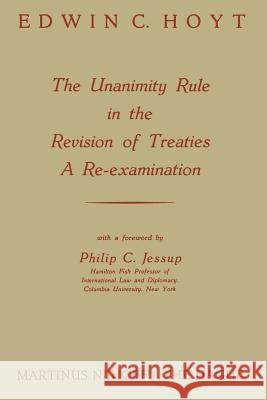The Unanimity Rule in the Revision of Treaties a Re-Examination » książka
The Unanimity Rule in the Revision of Treaties a Re-Examination
ISBN-13: 9789401187213 / Angielski / Miękka / 1959 / 264 str.
In international law the authority of the writers has been great and the Statute of the International Court of Justice still takes cognizance of them as subsidiary sources. Yet it has been widely recognized that on many points writers, even of the most respecta ble authority, have merely repeated the statements of their predecessors, sometimes with the result that error or some indivi dual dogma or predilection has been perpetuated. The three-mile limit of territorial waters, for example, was long identified with the range of cannon and with the famous dictum of Galiani until modern historical research revealed more accurately its historical origin in the practice of states. The very definition of internation al law as a law of which only states were subjects impelled to somewhat far-fetched inclusions of certain political entities as "states," and has had at last to yield at least to the concept that an international organization may also be a subject of inter national law. The long repetition of the essential attributes ot states - sovereignty, independence, equality - has not altered the realities of the very great differences between states in respect of each of these attributes. As Cardozo said of definitions, if our preconceived notions of international law do not accord with the facts of international life, so much the worse for those old no tions; they must be revised to be brought into line with reality."











